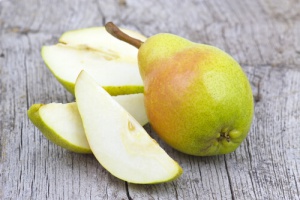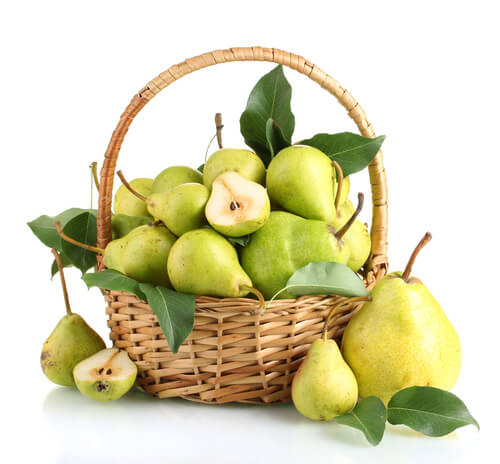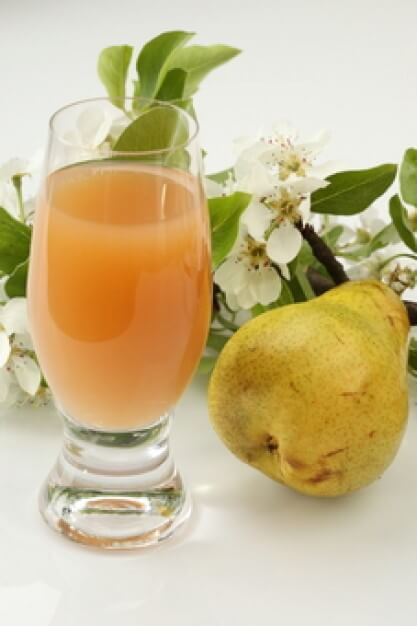Why is it Important to Eat a Pear a Day?


Written and verified by psychologist Valeria Sabater
Pears are undoubtedly one of the most beneficial fruits around. They’re a treasure with refreshing properties that you should not miss. So why not eat a pear a day?
Red, green, yellow pears…There are all sorts of pears, and they’re all just as healthy as the others. Pears are a great source of water, fiber, vitamins and minerals. They’re great for every family member and they’re a perfect ingredient for pastries and breakfast juices.
In this article, we’ll take a look at some more of the health benefits if you eat a pear a day.
Eat a Pear a Day and Enjoy Countless Benefits
Let’s take a look at why it’s healthy to eat a pear a day:
They’re packed full of nutrients
- Pears contain vitamins A, B, C, and E, folic acid, fiber, potassium, mineral salts, sugars, iodine, iron and calcium. They’re the perfect vitamin supplement for starting the day, which is why they’re often times recommended as an indispensable fruit for breakfast.
- Pears are antibacterial. Thanks to their tannins and caffeic acid, they protect your body from various infections and illnesses.
- They fight free radicals. Free radicals are harmful substances that attack cells, causing aging. Pears are very rich in antioxidants, making them perfect for staying young. They’re also fantastic as a source of vitamin C, as well as vitamin K.
Pears help prevent and fight diseases
- Pears care for your heart. This fruit helps regulates blood circulation and prevents strokes. There are very large amounts of fiber present in pears, which help reduce the so-called “bad” cholesterol. Several studies show that eating a pear a day reduces up to 50% chance of suffering from a stroke.
- They help prevents cancer. Their high antioxidant content, along with that of vitamin C, fiber, and folic acid, make pears perfect for cell construction. This makes them an excellent protector from several different types of cancer. In fact, a lot of studies talk about how pears help rid carcinogenic chemicals that accumulate. Pears are also excellent mediators for menopausal women.
- Pears alleviate constipation. Thanks to their high fiber content and their detoxifying properties, pears are an excellent way to promote healthy intestines, and to protect intestinal flora. This helps alleviate constipation.
- They regulate heavy digestion. If you frequently suffer from digestion problems and you feel swollen, heavy and gassy, don’t hesitate to drink pear juice or eat a pear. Pears contain pectin, which is great for preventing the effects of a heavy digestion.
Don’t forget to read:
How to Naturally Cleanse Your Intestines
A Recipe for Pear Juice
Pears can be found year-round, but it all depends on the type of pear. However, they’re generally best from June to February.
If it’s possible to get your hands on a few and they’re at a good price, we suggest that from here on eat you eat a pear a day. Eat them fresh, as a jelly, baked or in a breakfast juice.
Also read:
9 Cleansing Juices to Rejuvenate Your Body
Now, we’re going to give you a simple and nutritious recipe for a great juice to start the day with.
What do you need?
- Two pears
- Half a glass of water
- One teaspoon of honey
- One drizzle of lemon juice
How to prepare it
- First, wash and peal the two pears.
- Once ready, cut each one in half and blend in a blender.
- Once the juice is ready, mix with water so it’s no too thick.
- Add a few drops of lemon juice and the teaspoon of honey as a sweetener.
- Add an ice cube to it to make it just as refreshing as it is delicious.
- Enjoy!
All cited sources were thoroughly reviewed by our team to ensure their quality, reliability, currency, and validity. The bibliography of this article was considered reliable and of academic or scientific accuracy.
- de Oliveira, M. C., Sichieri, R., & Venturim Mozzer, R. (2008). A low-energy-dense diet adding fruit reduces weight and energy intake in women. Appetite. https://doi.org/10.1016/j.appet.2008.03.001
- Fernandez, M. L., Lin, E. C. K., Trejo, A., & McNamara, D. J. (1992). Prickly pear (Opuntia sp.) pectin reverses low density lipoprotein receptor suppression induced by a hypercholesterolemic diet in guinea pigs. Journal of Nutrition. https://doi.org/10.1093/jn/122.12.2330
- Zhao, Y., Wu, P., Wang, Y., & Feng, H. (2013). Different approaches for selenium biofortification of pear-jujube (Zizyphus jujuba M. cv. Lizao) and associated effects on fruit quality. Journal of Food, Agriculture and Environment.
This text is provided for informational purposes only and does not replace consultation with a professional. If in doubt, consult your specialist.










